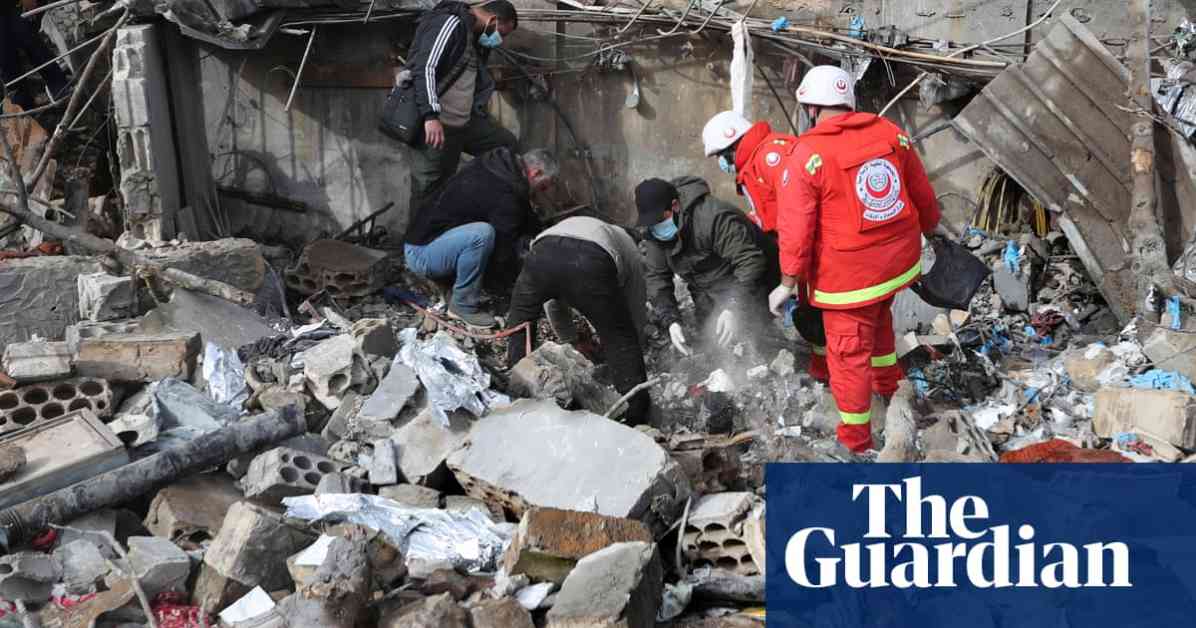Lebanon ceasefire hopes fade as Netanyahu sends mixed signals
Optimism for a potential three-week ceasefire between Hezbollah and Israel has taken a hit as Israeli Prime Minister Benjamin Netanyahu issued conflicting statements on the proposal within hours of each other. The uncertainty surrounding the ceasefire proposal has left many questioning the likelihood of a resolution to the ongoing conflict in Lebanon.
In a statement released by Netanyahu’s office overnight on Friday, the Israeli prime minister acknowledged that Israel had been consulted regarding a US-led ceasefire initiative. The statement expressed Israel’s support for the aims of the proposal, emphasizing the importance of enabling the safety and security of those living along the northern border. Netanyahu’s office praised the US efforts in advancing stability and security in the region, indicating a willingness to engage in discussions regarding the ceasefire.
However, a previous statement from Netanyahu’s office on Thursday contradicted this position, stating that reports of a ceasefire were inaccurate and that the prime minister had not responded to the American-French proposal. The conflicting messages from Netanyahu reflect a pattern of wavering on diplomatic initiatives, particularly concerning ceasefire agreements in the region.
The US officials involved in crafting the ceasefire proposal expressed initial optimism that Israel was on board with the plan when it was announced by the US, France, and other allies. However, Netanyahu’s contradictory statements have raised doubts about Israel’s commitment to the ceasefire, leaving US officials surprised and uncertain about the Israeli government’s position on the matter.
Lebanon’s plea for peace amid escalating violence
Lebanon’s Foreign Minister, Abdallah Bou Habib, has urged all parties involved to implement the ceasefire proposal, emphasizing the urgent need to de-escalate the violence that threatens the country’s very existence. Speaking at the UN General Assembly in New York, Bou Habib highlighted the ceasefire as an opportunity to make progress towards ending the crisis in the region.
The recent escalation of violence in Lebanon has resulted in significant casualties, with nearly 700 people reported killed in a single week. Israel’s intensified airstrikes targeting Hezbollah’s military capabilities have raised concerns about the humanitarian impact of the conflict on civilians in the region. The mounting casualties and destruction underscore the urgent need for a ceasefire to prevent further loss of life and displacement of communities.
The Israeli Defense Forces (IDF) have continued to engage in military operations with the goal of achieving strategic objectives in the conflict with Hezbollah. The IDF’s operations have focused on securing the safe return of Israelis who were forced to evacuate their homes in northern Israel due to Hezbollah attacks. The ongoing conflict has created a humanitarian crisis, with thousands of Israelis displaced and in need of assistance.
International pressure mounts for a ceasefire
The international community, led by the US and France, has put forth a concerted effort to broker a ceasefire agreement between Israel and Hezbollah. The proposed 21-day ceasefire aims to halt the violence and provide a pathway towards a peaceful resolution of the conflict. However, the mixed signals from Netanyahu and the resistance from his coalition members have complicated the prospects for a successful ceasefire agreement.
French President Emmanuel Macron has underscored the importance of Netanyahu’s cooperation in accepting the ceasefire proposal, warning of the potential consequences of rejecting the plan. The proposal, supported by the US and the EU, was crafted in consultation with Netanyahu, further highlighting the need for Israeli engagement in the peace process.
The domestic political implications of a ceasefire for Netanyahu have also come into play, with his national security minister expressing opposition to the ceasefire agreement. The internal divisions within Netanyahu’s coalition pose a challenge to achieving consensus on the ceasefire, further complicating the diplomatic efforts to end the conflict in Lebanon.
In conclusion, the conflicting statements and mixed signals from Netanyahu have cast doubt on the prospects for a ceasefire between Israel and Hezbollah. The escalating violence in Lebanon underscores the urgent need for a peaceful resolution to the conflict, but the political challenges and internal divisions in Israel have hindered progress towards a ceasefire agreement. As the international community continues to press for a halt to the violence, the fate of the ceasefire proposal remains uncertain.












